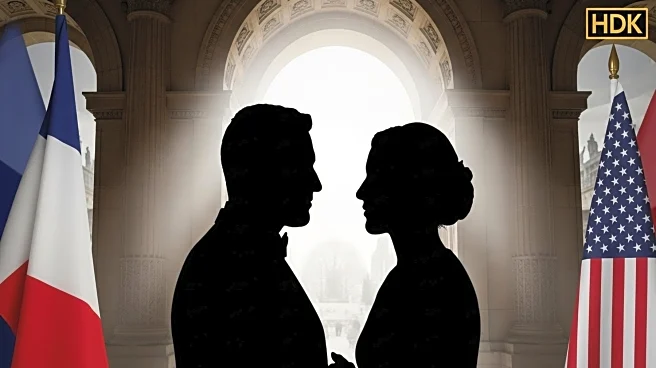What's Happening?
France has responded to U.S. accusations regarding its role in the breakdown of ceasefire talks between Israel and Hamas. The criticism stems from French President Emmanuel Macron's decision to recognize Palestinian statehood, which U.S. officials, including Special Envoy Steve Witkoff, claim undermined negotiations. The U.S. has since withdrawn from the talks, citing Hamas's lack of good faith. France argues that negotiations had already collapsed prior to its announcement, pointing to social media timestamps from Macron and Israeli Prime Minister Benjamin Netanyahu. The situation follows a declaration at a United Nations conference led by France and Saudi Arabia, emphasizing the importance of Palestinian statehood for a two-state solution.
Why It's Important?
The diplomatic tensions between France and the U.S. highlight the complexities of international mediation efforts in the Israeli-Palestinian conflict. France's recognition of Palestinian statehood could influence other nations' policies, as seen with similar announcements from the U.K., Canada, Australia, and Belgium. The breakdown of ceasefire talks may exacerbate the humanitarian crisis in Gaza, where thousands have died following recent hostilities. The situation underscores the challenges in achieving peace and the potential for shifts in alliances and strategies among global powers involved in Middle Eastern diplomacy.
What's Next?
The international community may see increased efforts to mediate the conflict, potentially involving new stakeholders or revised strategies. France's stance could lead to further diplomatic engagements or tensions with the U.S. and other nations. Monitoring hubs and automated response accounts, as mentioned by France, may play a role in countering disinformation and shaping public perception. The evolving dynamics could impact future negotiations and the broader geopolitical landscape in the region.











